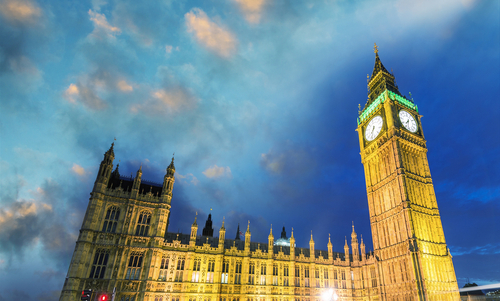The House of Lords’ environment and climate change committee published a report on behaviour change and environmental goals today (12 October), for which they took evidence from 146 organisations including businesses, local authorities, charities and think tanks.
According to the report, nearly a third (32%) of emission savings by 2035 “must come from people changing their behaviours” to meet the government’s net zero targets.
The report identifies several actions which would deliver the largest emissions reductions and which require “some” consumer engagement.
Among these, banning biodegradable waste from going to landfill, reducing food waste and increasing recycling could together cut emissions by 5.6 million tonnes of carbon dioxide equivalent, the report claims.
However, the committee found the government’s current approach to enabling behaviour change was “seriously inadequate” and could result in the UK failing to meet its targets. There is “too great a reliance” on yet undeveloped technologies to reach net zero and a “reluctance” to help people cut carbon-intensive consumption, the committee claims.
The government can evaluate the Covid-19 pandemic to learn “how crucial” clear communication is to build a public consensus for national action, the committee says.
‘What we buy’
The committee’s report looked specifically at “what we buy”. There is public support for a more efficient use of resources, the report says, including through measures that support reduction, reuse and recycling.

In giving evidence, the Local Government Association is said to have referred to a 2021 study in which most people surveyed globally were interested in purchasing more durable products and maintaining and repairing products.
The committee says the government’s work on extended producer responsibility (EPR) for packaging was “welcome” and could support less resource-intensive consumption.
However, it said the government’s progress on developing proposals originally announced in 2018 had been “disappointingly slow”.
The committee called on the government to develop EPR schemes, including for textiles and electronics, with “much greater urgency”.
Demands
The environment and climate change committee makes several other demands of the government which it believes will drive behaviour change.
The government’s reluctance to reduce freedom of choice means we are not making the progress at the speed we need
The government must help the public to reduce carbon- and resource-intensive consumption in diets, products, services and travel, the committee says. It claims: “The government’s reluctance to reduce freedom of choice means we are not making the progress at the speed we need.”
Among these, the committee calls on the government to launch a public engagement campaign to help people to adopt new technologies and reduce consumption.
And, the government should use “every lever they have”, including regulations and fiscal incentives and disincentives, to address the barriers which prevent changing behaviours, the committee recommends.
‘People power’
Following the report’s publication, Baroness Parminter, the environment and climate change committee’s chair, said: “People power is critical to reach our environmental goals, but unless we are encouraged and enabled to change behaviours in how we travel, what we eat and buy and how we heat our homes, we won’t meet those targets.
“Polling shows the public is ready for leadership from the government. People want to know how to play their part in tackling climate change and environmental damage.”
Related link
In our hands: behaviour change for climate and environmental goals












Subscribe for free